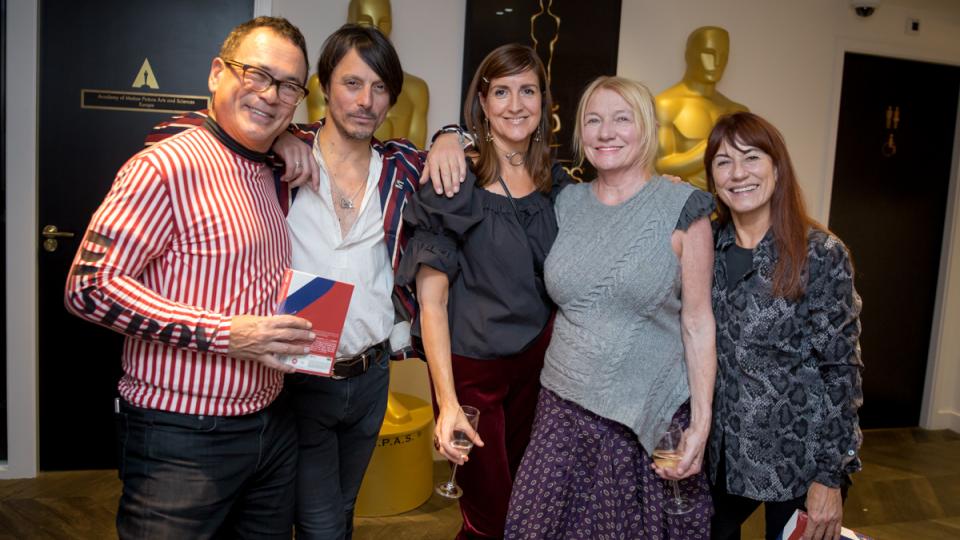
How can we celebrate the history and influence of British music video?
Introduction
For more than 50 years, promotional films for British popular music have received critical acclaim and numerous awards. Since the launch of MTV in 1981, these films have become known as 'music videos', even though the overwhelming majority were shot on 35mm and 16mm film until the 2000s and the form predated MTV.
In 1964 a series of short promotional films for British bands were commissioned culminating in seminal short 'promos' for The Kinks, Pink Floyd and The Rolling Stones through the mid-to-late Sixties. It was these that kickstarted the modern ‘pop promo’.
Professor Emily Caston’s work archives the importance and influence of British music video and is some of the first research of its kind to be carried out in the UK.
Uncovering the importance of British music video
In collaboration with the British Film Institute, the British Library and Professor Justin Smith from De Montford University, Professor Caston completed a three-year study investigating the little-known history of music videos in Britain and the impact it has had on the screen industries more generally.
Music videos have not only impacted generations of television viewers but have also inspired creative producers in fashion, design, photography and feature film. Yet despite its recognition, its innovation and its longevity, the cultural significance of music videos has been largely unacknowledged within British academic research. This project was designed to address this.
As a basis for the project, Professor Caston and Professor Smith, together with their research team created a master database of British music videos from 1966-2019 using data donated by the British licensing agency, Video Performance Licensing (VPL) and the trade journal Promo News.
The research was written up in a monograph by Caston on the history of the production industry. The team also released a special edition box set of 200 landmark music videos, entitled "Power to the People", which received praise from industry professionals, journalists and the general public.
The resources have also proved a valuable addition to teaching in secondary schools and further education. The collection of music videos was used in the lockdown initiative “Leap into Media”, to help keep A-Level students engaged in their studies while schools were closed.
Celebrating the role of woman in music video
A central goal of the project was to recognise the work of acclaimed female filmmakers such as Sophie Muller in British music video whose work and careers were not previously recognised by historians of British film and television.
In 2020, Caston edited a special issue of the peer review journal Alphaville which contained interviews she had conducted with three influential women in the British music video industry.
One of the women she interviewed, Sophie Muller, has shot over three hundred music videos through her prolific and celebrated career. Her work has won numerous awards, including a Grammy, multiple MTV and CMT awards, a Brit Award, a Music Week Award, and the MVPA Director of the Year Award.
Collaboration in Cuba
After being awarded a second round of funding to continue in this area of research, Caston began a collaboration with filmmakers in Cuba as a way of helping to stimulate to Cuban music industry in 2018.
She worked with Cuban director, Giselle Garcia Castro, from Island Film Production and Camera House to create a music video for “Soy el Versa”, a track on the “Fuerz Arara” album by leading Cuban rap artist Telmary Diaz.
The pair collaborated with artists from the leading Cuban dance company Danza Contemporánea de Cuba and director WIZ, who had previously collaborated with the company on the video for Disclosure’s “Voices”.
While in Cuba, Caston also held a workshop, screening and panel discussion for the students and the International Film and Television School.
The International Music Video Festival
Caston has also taken her work to the International Music Video Festival, the principal and largest international industry convention for video production, which takes place in Ibiza every year. For three years running, she has presented the “Power to the People” boxset and delivered talks to over 200 attendees from the music video industry around the world.
The research team
- Professor Emily Caston - Professor of Screen Industries
- Professor Justin Smith - Professor of Cinema and Television History, De Montfort University
Find out more
-
Research Centres and Groups
Find out about our multi-disciplinary areas of expertise, PhD research, and teaching.
-
Research impact
Learn how our PhD research has helped communities locally, nationally and internationally.
-
The Graduate School
If you are interested in studying for a PhD or Professional Doctorate, the Graduate School is here to support your research.









